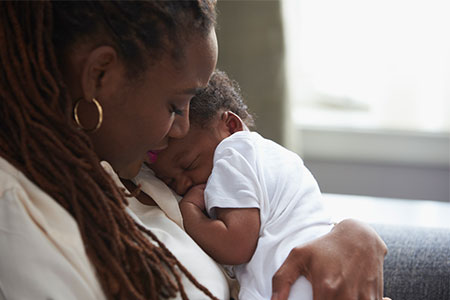How to help yourself
Postnatal depression can be caused by multiple factors, including the fluctuation and drop in hormones your body experiences during and after giving birth4. But, regardless of how it’s happened, if you do find yourself struggling it can be really challenging. And it’s important to know support is out there for you.
Be that leaning on your network of family and friends or seeking the support of a GP or mental health professional, there are resources available to you. Aside from your network there are self-care tips which have been recommended by organisations such as the MMHA (Maternity Mental Health Alliance) and mental health charity Mind.
Having a new baby can be challenging for a number of reasons including lack of sleep and generally just having the responsibility of a new tiny human! This can make day-to-day tasks overwhelming so make sure you ask for help. Where you can, try to meal prep for the whole week to save both time and money.
Try and sleep (where you can)! Easier said than done but, when you can, be that in the afternoon or 10am when your baby goes down for a nap try and grab some much-needed shut eye. Sleep may be inconsistent but make sure you, your partner or family member take turns to get some rest. And above all, give yourself a break. No one knows what they’re doing, so know you’re doing your best and that’s enough – you are enough!



